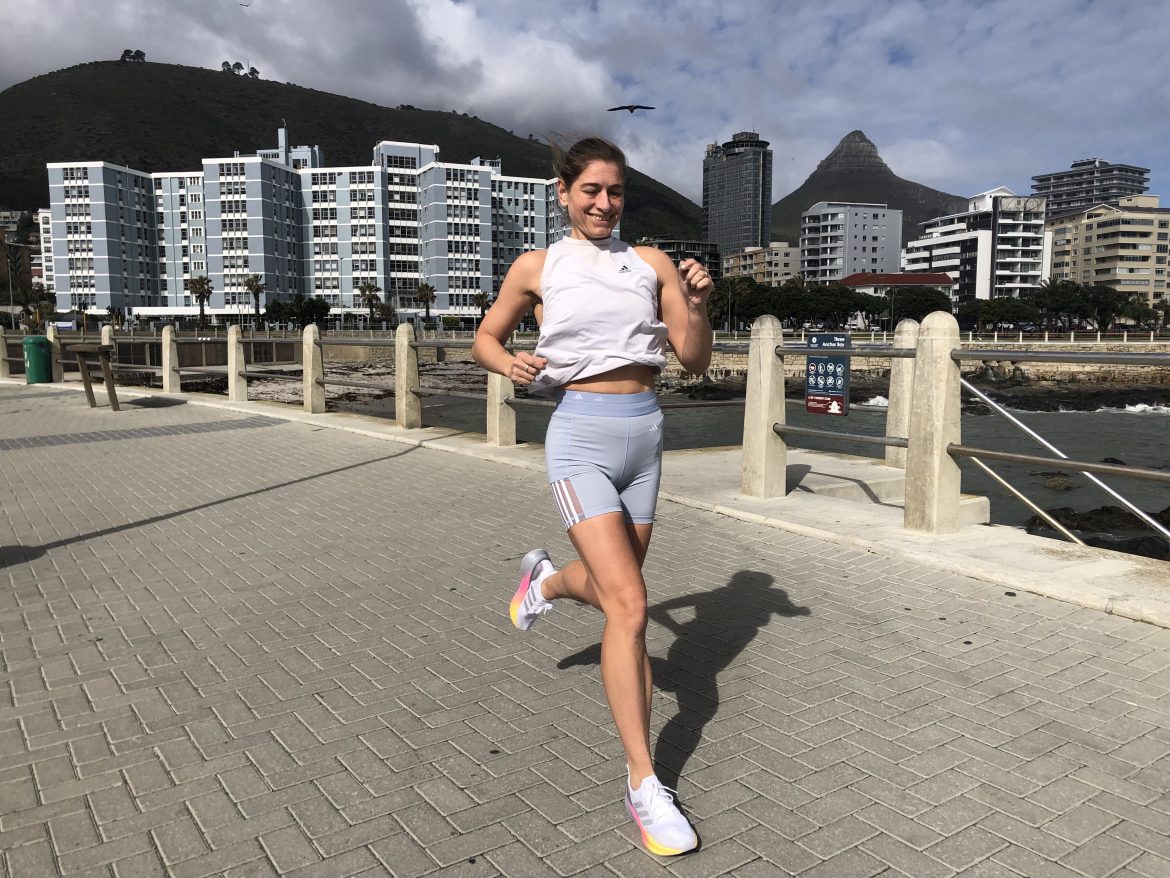I’ve run 10 marathons and six ultra-marathons, but it’s been almost a decade since I participated in a long-distance race. I’m now 40, (hopefully) a wiser runner than I was in my 30s, writes Lisa Abdellah.
My coach has helped me understand the science of training, I’ve pushed my body to new performances and in horrible weather, learned I will recover from most injuries, and with the help of my registered dietician, I eat like a saint. Physically, I can’t get away with what I did in my 30s, finishing a marathon and going clubbing that evening, ordering takeaways and ‘forgetting’ to strength train.
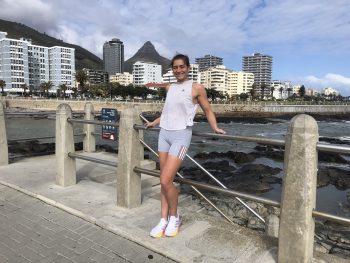
Mindset
In my 30s, I put pressure on myself to perform in training sessions and at races, which harmed my mental health. I’ve reframed my approach to running as an opportunity to spend time alone, meditate, tune into my body and adjust my effort depending on the conditions or how I’m feeling.
Pushing my mind through challenging sessions and making myself get out there, whatever the weather, has strengthened my endurance and resilience.
I’ve smashed confidence-boosting time goals in the 5 km (18.56) and 10 km (39.56).
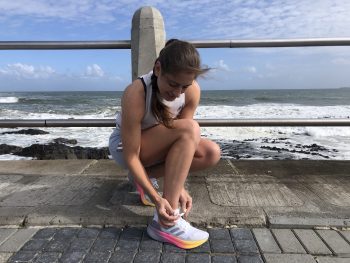
Training
Running Technique Coach Sean Tait has taught me the importance of structuring speed work, hills, easy runs and rest. He also builds my programme to reach peak performance at the right time without getting injured.
Your V̇O₂ max measures how much oxygen your body uses while exercising; the higher it is, the better your physical fitness. This number declines as you age, meaning you can’t run at the same speed as in your 30s. Luckily, I’ve spent the last decade focusing on shorter distances like 1 500m, 5 km and 10 km, involving high-intensity sessions, which will have slowed this down. And there’s more good news: running a marathon doesn’t require you to run at an all-out V̇O₂ max effort like you do over a shorter distance like 5 km, relying more on other factors like the stamina and endurance you mastered in your 30s. That’s why many athletes in their 40s find they run their fastest marathon.
As you age, you lose muscle mass. Strength training a few times a week helps me to maintain a high proportion of my muscle mass, leading to better running potential and injury prevention. I do at-home workouts with dumbbells and resistance bands a few times weekly.
Recovery
Clubbing? I’m clocking eight hours of sleep, nodding off in front of the telly at 9 pm. That and two non-running days a week allow my muscles to repair after training.
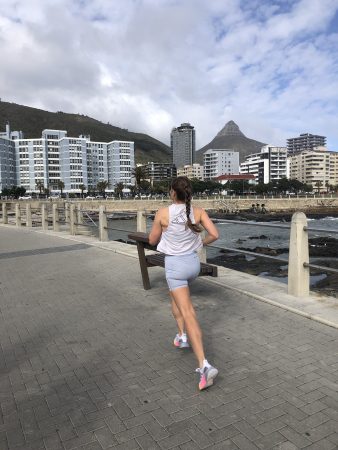
Nutrition
Registered Dietician Yolandé van der Riet increased my daily kilojoules to match the energy I’d use during training for the marathon to avoid losing weight – as I had in the past, causing my periods to stop.
As I’m a woman in my 40s approaching perimenopause, she included more variety of fruits and vegetables and either oily fish or an Omega-3 supplement to help improve bone and joint health. She also recommended a calcium supplement for bone health but in the form of a multivitamin-mineral, as calcium alone could’ve potentially worked against my iron supplementation (at the time, I was deficient).
Besides energy gels during long runs, she recommended electrolytes, particularly when it was hot, to avoid dehydration and muscle cramping.
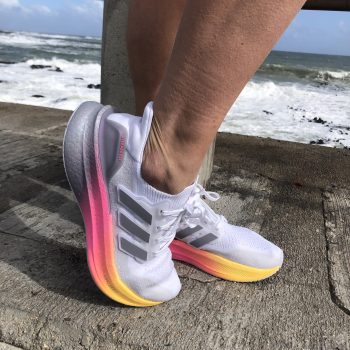
Gear
I entered the Cape Town Marathon because I’d seen other athletes having the time of their lives running long distances on coastal and Winelands roads. That was in summer. My reality of training through winter was spending hours relentlessly battered by Mother Nature’s lightning storms and gale-force winds.
There’s this saying in the running community that there’s no such thing as bad weather, just poor gear. So, I went out in it, my cosy Nike Dri-FIT running jacket buffering the wild conditions. I’ve also developed an unhealthy obsession with adidas Adizero Boston shoes – I’ve got a few pairs on rotation – for their versatility, as they’re fast but durable.
The Cape Town Marathon is aiming for Abbott World Marathon Major Status with 15 000 participants in the 42.2 km event.
This year, adidas will reward all participants who start, run and finish the 42.2 km marathon in adidas footwear on October 20, 2024, with a R2 000 adidas online shopping voucher. For more information or to follow the conversation, follow @capetownmarathon @adidasZA #RunForAfrica #YouDoCount #ToAfricas1stMajor
ALSO SEE:
Wild swimming: what it is, should you try it, and how to do it safely
Feature Image: Supplied / Lisa Abdellah

